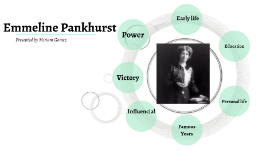Historical Powerpoint
Transcript: H I S T O R I C A L P O W E R P O I N T 46-120 AD He was a historian, philosopher, and essayist. Plutarch wrote the influential classic Parallel Lives Plutarch tried to inspire others to greatness Plutarch is refer to by some as the first great modern writer Pultarch is related to Greek history No accurate records of his birth or death date but historians agree he came about around the 8th century B.C.E. He was a legendary poet known mainly for his two long epics, the Iliad and the Odyssey Homer influenced many upcoming authors as they tried to copy his style Homer is related to Greek history 20 March 43 BC – AD 17/18 He was a poet who is best known as the author of the three major collections of erotic poetry: Heroides, Amores, and Ars Amatoria Ovid influenced Western art and literature Ovid is related to Roman history 13 July 100 BC–15 March 44 BC He was a general, a statesman, and a distinguished writer of Latin prose Caesar played a critical role in the steady transformation of the Roman Republic into the Roman Empire Julius Caesar is related to Roman history 384 BC – 322 BC Aristotle was a philosopher, a polymath, a student of Plato, and teacher of Alexander the Great Aristotle is one of the most important founding figures in Western philosophy Aristotle's writings were the first to create a comprehensive system of Western philosophy Aristotle was related to Greek history 460 BC–370 BC Hippocrates was an ancient physician of the Age of Pericles Hippocrates is considered one of the most outstanding figures in the history of medicine He was the founder of the Hippocratic School of medicine which revolutionized medicine in ancient Greece No accurate records of his birth or death date Romulus is one of Rome’s founders but is sometimes referred to as the sole founder Romulus is related to Roman history Acropolis was built around the same time period as the Parthenon Acropolis served as a church and a city hall. It served many purposes Acropolis is related to Greek history 287 BC – 212 BC Archimedes was a mathematician, physicist, engineer, inventor, and astronomer Archimedes is generally considered to be the greatest mathematician of antiquity and one of the greatest of all time. Archimedes is related to Greek history 497 BC – 406 BC Sophocles is one of three ancient Greek tragedians whose plays have survived. He competed in around 30 competitions, won perhaps 24, and was never judged lower than second place Sophocles is related to Greek history 15 December 37 – 9 June 68 Nero was an Emperor from 54 to 68, and the last in the Julio-Claudian dynasty Nero focused much of his attention on diplomacy, trade, and enhancing the cultural life of the Empire Nero is related to Roman history The building of the Parthenon began in 447 BCE and continued until 438 BCE The glory of the Parthenon was the gigantic statue of Athena designed by Phidias and made out of chryselephantine The Parthenon is related to Greek history 16 November 42 BC – 16 March 37 AD Tiberius was an Emperor from 14 AD to 37 AD Tiberius was one of Rome's greatest generals, conquering Pannonia, Dalmatia, Raetia, and temporarily Germania; laying the foundations for the northern frontier Tiberius is related to Roman history its construction started in 72 AD and was completed in 80 AD the Colosseum was used for gladiatorial contests and public spectacles such as mock sea battles, animal hunts, executions, re-enactments of famous battles, and dramas based on Classical mythology The Colosseum in Rome is related to Roman history 247–183 or 182 BC Hannibal was a Carthaginian military commander and tactician. He is generally considered one of the greatest military commanders in history Hannibal is related to Roman history 423 BC- 348 BC Plato was a Classical philosopher, mathematician, student of Socrates, writer of philosophical dialogues, and founder of the Academy in Athens, the first institution of higher learning in the Western world Plato helped to lay the foundations of Western philosophy and science Plato is related to Greek history 570–c. 495 BC Pythgoras was an Ionian philosopher, mathematician, and founder of the religious movement called Pythagoreanism. Pythagoras made influential contributions to philosophy and religious teaching in the late 6th century BC. He is often revered as a great mathematician, mystic and scientist, but he is best known for the Pythagorean theorem which bears his name Pythgoras is related to Greek history January 14, 83 BC – August 1, 30 BC Marcus Antony was a politician and general Antony formed an official political alliance with Octavian (the future Augustus) and Lepidus, known to historians today as the Second Triumvirate which broke up in 33 BC. Marcus Antony is related to Roman history Acropolis Nero aristotle Marcus Antony Plutarch Romulus Hippocrates Archimedes parthenon Pythgoras Collosseum in Rome PlATO Homer Tiberius Ovid Nero julius ceasar Hannibal Sophocles

















